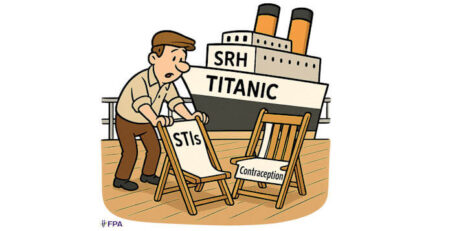Sexual functioning and the effects of contraception
“I get asked, not infrequently, about a patients’ Contraception and whether it may be the cause of their sexual problems. Although there is not a lot of evidence to draw firm conclusions, I will attempt to summarise what we know.”
Naomi Sutton.
Before I talk about the potential problematic effects contraception might have on sexual function it is important to keep in mind that the anxiety and fear of pregnancy and or sexually transmitted infections can cause their own set of sexual problems due to the reduction in desire and arousal caused by these feelings. Fear and anxiety are definitely not emotions which are conducive to feelings of ‘sexiness’ as they interfere with the arousal and desire processes. This in turn can lead to painful vaginal sex due to lack of lubrication or hypertonic pelvic floor muscles, or in men – erectile dysfunction.
The evidence about condoms (and other barrier methods), on sexual function is scarce but it varies among individuals and is dependent on many factors.
Although some feel they interfere with the spontaneity of intimate relationships, others see them as enabling partners who are new to each other to be involved in relationships without the worry of commitment or STIs.
One study, which included heterosexual men of at least 18 years of age, demonstrated that men who reported not having enough time or feeling rushed to put on the male condom were more likely to experience sexual problems. These included difficulty with erection, reduced pleasure and interestingly their female partners were more likely to report that the condom irritated the vagina.
It is therefore important to slow down and apply the condom. With so many condoms on the market (different sizes, shapes and feeling) finding one that suits you is much easier than you could imagine. Find your preferred type and incorporate it into the fun of the event.
There are of course female condoms available which come in a few sizes. Sadly, these are upwards of 2-3 times the cost of male condoms and can be a little tricky to apply when first used. They do have the added advantage that they can be used with oil-based lube, without damaging them, unlike male condoms, as they are made of nitrile and not latex. They are also less likely to rupture and may be used as an option for anal sex by the receptive partner.
So, in a nutshell, especially in a new relationship, condom use can concentrate the mind on the fun and pleasure of the bedroom activities rather than distraction through worry and anxiety as long as time is taken for application.
It is important for completeness at this point to mention Pre-Exposure-Prophylaxis (PrEP) which may be appropriate for some individuals who are at high risk of acquiring HIV. This is a medication which is available to eligible people from Sexual Health Clinics in the UK.
Oral contraceptives or ‘The Pill’ are the most prescribed hormonal contraceptives, widely used for both contraception and sometimes bleeding problems. There is conflicting evidence in the literature on the effect of these methods on sexual function, yet most studies describe a negative effect or no effect.
In those that report a negative effect they estimate that about 15% of women receiving oral contraceptives experience sexual dysfunction in the form of low libido and or vaginal dryness. It is thought that these changes are mainly due to the effects oral contraceptives have on serum androgens (sex hormones), although many factors may contribute to this complex problem.
The Progesterone only form of the oral contraceptive is no different, having similar effects on sexual function as the combined oral contraceptive. However, it may also cause irregular bleeding, which can have a further negative effect in some individuals.
Similarly for injectables and implants which are also progesterone only methods of contraception.
The good news is that these effects appear to be fully reversible on stopping the method and there are other options which may be better.
The copper coil (or IUD) is a non-hormonal Long Acting Reversible Contraceptive (LARC). They are very effective at preventing pregnancy and do nothing to alter natural hormones.
The copper on the IUD causes an inflammatory reaction within the womb which creates a hostile environment and prevents implantation. The copper is also toxic to sperm and eggs so there is very little chance of them surviving long enough to meet and form an embryo. Due to the lack of effect on natural hormones it, unsurprisingly, does not appear to have any effect on arousal, although in some it may cause heavier bleeding which can have a negative effect on desire.
And here is the best news, the hormonal coil (or IUS) is a hormonal contraceptive which appears to have some POSITIVE effect on sexual function, three cheers for this!
In one study the IUS showed an improvement in the quality of life with a decrease in vaginal pain and an improvement in sexual desire. The IUS also has the added advantage of reducing bleeding or stopping bleeding all together which for some is a huge advantage.
In conclusion, data is scarce but contraceptive choices do seem to influence sexual functioning, sadly sometimes in a negative way, however…
…the use of contraceptives is important for the health and happiness of human beings as it allows us to have sex when and how we want to with reduced risk of pregnancy and/or STIs. Choices should always be tailored to meet an individual’s needs and if problems arise with a particular method, it would be advisable to consider alternatives.
Dr Naomi Sutton is a Consultant Physician, Integrated Sexual Health Services and FPA Ambassdor. Graduating from Sheffield Medical School in 2003, Naomi starred in E4’s ‘The Sex Clinic’ which helps young people get their sex lives back on track, as well as C4’s ‘Steph’s Packed Lunch’.
FPA’s mission is to be the Sexual Health Company that provides gold standard, accurate, unbiased and up to date information on Relationships and Sex Education, Sexual and Reproductive Health, and Postnatal Health and Wellbeing. You can learn more about us and our history here.






